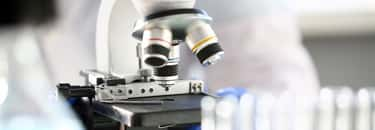IVF vs ICSI: What Technique to Choose?

Nowadays, Assisted Reproduction has two main techniques: conventional fertilization (IVF, In Vitro Fertilization), and Intracytoplasmic Sperm Injection (ICSI) including its variations such as IMSI (Intracytoplasmic Morphologically Selected Sperm Injection) and PICSI (Physiological Intracytoplasmic Sperm Injection).
Natural Fertilization: how does it occur?
Fertilization is a highly complex event that involves recognition and fusion between one sperm and one oocyte. There are three main stages in fertilization: sperm capacitation and acrosome reaction, sperm–oocyte binding and fusion, cortical reaction, and oocyte activation. Fertilization of an oocyte by a sperm results in the formation of the zygote, a single–celled embryo.
Conventional Fertilization: how does it happen?
In IVF, the previously capacitated sperm are deposited together with the oocytes in IVF Petri Dish filled with an IVF Fertilization medium (nutrient solution designed to provide a nurturing environment for oocytes, sperm, and embryos) for making fertilization to occur naturally when sperm penetrates the oocyte and the mystery of fertilization happens.
Intracytoplasmic Sperm Injection: how is it done?
ICSI technique requires using a Multi–Zone ART/IVF Workstation equipped with an inverted microscope, a micromanipulator (precision positioning device) to control the movement of the ICSI micropipette, and a microinjector. Holding and injection pipettes are used for fixing and holding the oocyte while injecting it, and catching the single sperm cell for completing fertilization. The procedure is performed in a plastic ICSI microinjection dish containing microdroplets covered with mineral oil. In ICSI, sperm are also capacitated before fertilization but instead of depositing together with the oocytes, the single sperm cell is immobilized, caught by the tail with the pipette, and injected directed into the center of an oocyte.
IVF vs ICSI: what technique to choose?
Both techniques are performed depending on many factors: the number of retrieved mature oocytes, variability in oocyte quality, variability in semen quality, and the other ones that may affect the result of fertilization. That is why, on the day of performing fertilization, Andrologists, Gynecologists, and Embryologists must decide which technique will be the most effective in this case to achieve optimal fertilization. And sometimes, Embryologists may follow a Hybrid Fertilization Protocol by using both techniques (IVF and ICSI) for fertilizing the oocytes.
Indications for IVF technique:
- Repeated failure of timed intercourse and Intrauterine Insemination
- Unexplained infertility
- Genetic/Chromosomal factors
- Mild to moderate infertility (various factors like low ovarian reserve, ovulation failure, female tubal obstruction, and endometriosis)
To perform conventional fertilization, the partner’s/donor’s sperm should have a normal count, morphology, and motility to be able to fertilize the oocytes.
Indications for ICSI technique
- Used when there are severe or moderate changes in semen quality
- Use of epididymal or testicular sperm samples
- Use of acrosomeless sperm
- Use of immotile sperm
- 1–2 previous fertilization failures with conventional IVF
- Cryopreserved oocytes
- After IVM (In Vitro Maturation) of immature oocytes (because of potential hardening of the zona pellucida during)
- Poor–quality oocytes
- Low oocyte yield
- ICSI for PGT (for cases requiring PGT of embryos)
Is it possible to change the fertilization technique right on the day of performing fertilization?
The Embryologist can change the fertilization technique right before fertilization if there would be indications for using the more advanced one. It seems that it is possible to change conventional fertilization to ICSI. And also add such techniques as Intracytoplasmic Morphologically Selected Sperm Injection (IMSI) or Physiological Intracytoplasmic Sperm Injection (PICSI) which represent more sophisticated methods of performing ICSI.
IVF and ICSI Fertilization in one cycle, is it possible?
Sometimes both techniques (conventional and ICSI) can be used in one cycle. Hybrid Fertilization Protocol fueled if sperm has slight alterations and a more sophisticated technique should be used.
IVF vs ICSI success rates
Introduction of the new Treatment Protocols made the positive changes in success rates of both techniques. If earlier conventional fertilization has a lower success rates compared to ICSI, now, fertilization rates between IVF and ICSI are nearly the same, around 70–80% depending on the case.